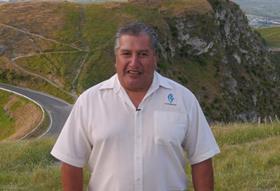
Fresh produce industry members in New Zealand’s Hawke’s Bay, Whangarei and Auckland regions fear losing their GM free status if the Maori Party sides with the federal government and agrees to pass the Resource Management Act (RMA).
Under clause 360D in the RMA bill, the government can stop regions from making their own decisions on key issues, such as whether their territories remain GM free.
Industry stakeholders from within the three GM free regions launched a social media campaign late last month calling on the Maori Party to help them “stand up for local democracy” and “protect their right to be GM free.”
This includes a video posted on Facebook, featuring Kahunaungu Authority chairman, Ngahiwi Tomoana, former All Blacks captain Taine Randell and Hastings mayor Lawrence Yule, along with various other community leaders, local politicians, growers and exporters.
“We have a duty for our people to provide the best food from the best land on the planet - free of genetic modification,” said Tomoana. “We will work face to face and shoulder to shoulder with all our communities and we won’t allow anyone to take these rights from us.”
The Maori Party supported the government’s move to amend the bill late last year, providing the votes needed for the process to move to the next stage.
Prior to Christmas, the Maori Party told New Zealand environment minister Nick Smith they did not support new regulatory powers under 360D if they can be used to prevent regions from creating GM free zones.
Maori Party co-leader Marama Fox told the New Zealand Herald his party would be discussing the bill when parliament resumes this week. Fox added that it was 'very clear' the party’s understanding of the clause was different to Mr Smith's after seeing the government’s draft.
John Bostock, owner of Hawke’s Bay-based grower-packer-exporter Bostock New Zealand, said the marketing opportunities for the region’s products were huge, but only if it remains GM free.
“We don’t want central government interfering with how we market our produce. We want them to stand up and let our community decide our GM policy,” explained Bostock. “New Zealand is never going to feed the world. We will only ever feed a small proportion of the world, so we have to focus on our point of difference and that is offering high-end, premium food that is GM free.”






No comments yet